Resources
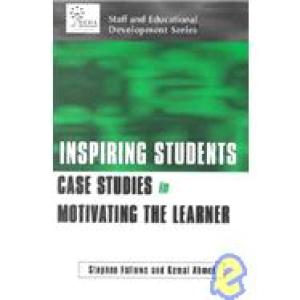
This book looks specifically at the problems of teaching students in higher education taking courses outside their main area of interest. This book brings together an international collection of case studies from North America, Australia, New Zealand and the UK in which practicing university teachers describe strategies which they have adopted to inspire their students. Each case study is presented in a way which enables the transfer of the key ideas to other teachers, regardless of their subject discipline. The editors provide an introduction to the book and review the key lessons to be learnt from the case studies. (From the Publisher)
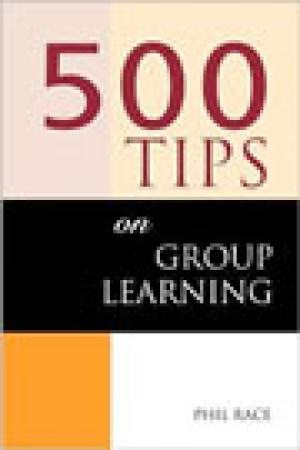
With an ever increasing emphasis on continuing professional development, in-service training, plus widening participation in further and higher education, the importance of group learning has never been higher. Collaborative and co-operative learning is a crucial method for helping people get the most out learning, and because it offers the possibility to teach higher numbers, or diverse groups of people successfully, it has become an important technique for educators and trainers to call upon. Using the well-known, tried and tested 500 Tips format, this book provides practical, user friendly, easy-to-use advice and support which will enhance learning and training. (From the Publisher)
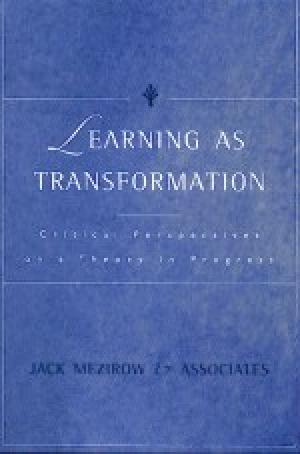
In 1978, Jack Mezirow introduced the concept of transformative learning in his groundbreaking study of women who returned to community college to continue their education. As their understanding of personal, cultural, and social histories grew, so did the students' ability to modify their assumptions and expectations of learning. Since that time, transformative learning has inspired a significant body of research and theory. This volume continues the work begun over twenty years ago—revealing the impact of transformative learning on the theory and practice of adult education Fifteen of the field's top scholars and practitioners join Jack Mezirow in these pages. Together, they review the core principles of transformation theory, analyze the process of transformative learning, describe different types of learning and learners, suggest key conditions for socially responsible learning, explore group and organizational learning, and present revelations from the latest research. They also share real-world examples drawn from their own experiences as educators and assess the evolution of transformative learning in practice and philosophy. Learning as Transformation presents an intimate portrait of a powerful learning concept and invites educators, researchers, and scholars to consider the implications of transformative learning in their own professional work. (From the Publisher)
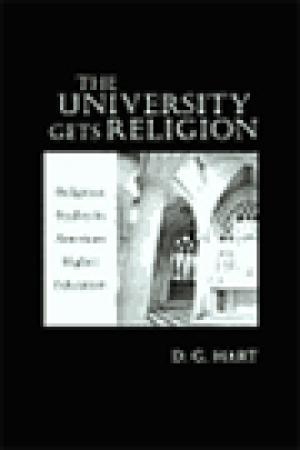
In The University Gets Religion: Religious Studies in American Higher Education, historian D. G. Hart examines the rise of religion to its current place as one of the largest academic disciplines in contemporary higher education. Protestant ministers and faculty were especially influential in arguing for the importance of religion to a truly "liberal" education, staffing departments and designing curricula to reflect their own Protestant assumptions about the value of religion not just for higher education but for American culture in general. Though many educators originally found religion too sectarian and unscientific for colleges and universities, religious studies nevertheless emerged after World War II as a crucial element of a liberal education. But the success of mainstream Protestantism in fostering the academic study of religion has become the field's greatest burden. Over the last twenty-five years, religion scholars have distanced themselves from traditional Protestant orientations while looking for topics better suited to America's cultural diversity. As a result, religion is in the awkward position of being one of the largest scholarly disciplines while simultaneously lacking a solid academic justification. It may be time, Hart argues, for academics to stop trying to secure a religion-friendly university. The first sustained history of the academic study of religion at American universities, The University Gets Religion: Religious Studies in American Higher Education is a timely book that explores the present-day implications of religious studies' Protestant past. (From the Publisher)
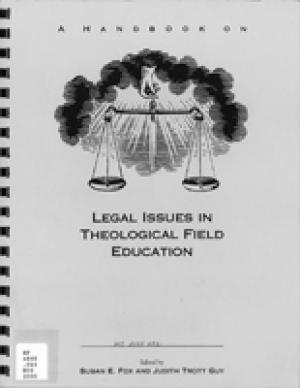
When you think about legal issues and field education, how do you feel? What thoughts come to mind when you think of culture in this context? What stories and teachings from our faith tradition can inform the interface between legal issues and field education? (From the Publisher)
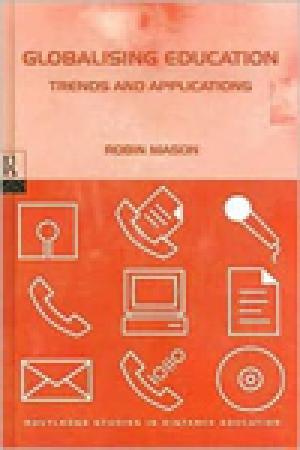
Globalising Education is a systematic and thoroughly researched study of how technologies have altered the delivery and reception of education. Mason examines how global education is actually delivered in practice, case studies which investigate current developments and applications in the USA, Europe, the UK and Australia, and conclusions drawn from the issues covered. She studies the huge impact of the World Wide Web on current educational practice, exploring the implications for students, teachers and the larger institutional framework, and provides an important overview of the current technology and the technologies to come. (From the Publisher)

Drawing on experiences from a range of fields, including public administration, policy analysis, law, teacher training, ethics, and undergraduate education, this book is intended to be a practical, process-oriented guide to teaching, writing, and learning with cases. The guide is organized into four parts: (1) "Teaching with Cases: Principles" (concerned with the different meanings of the term "case method" in various domains of teaching, with sources of resistance to case teaching, and with strategic issues teachers face in deciding what and how to teach); (2) "Teaching with Cases: Techniques" (concerned with the practice of case teaching ranging from the basics to the more advanced "tricks of the trade" practiced by experienced instructors; content could be covered in a case teaching workshop of three to five days in length); (3) "Curriculum Planning" (describes the types of cases available and provides guidelines for selecting appropriate cases to use for teaching); (4) "Case Writing" (approaches case writing as the subject might be handled in a case writing workshop designed to produce usable new cases). An appendix contains a teaching case, a teaching note, and a case analysis. References include a selected bibliography of case teaching and case learning guides and literature, case catalogs, and on-line resources. (From the Publisher)
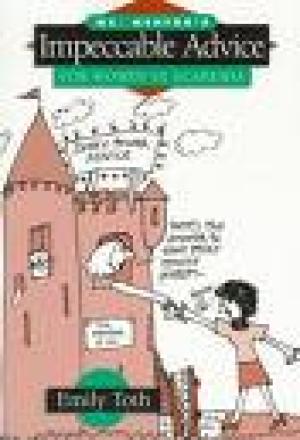
In question-and-answer form, Ms. Mentor advises academic women about issues they daren't discuss openly, such as: How does one really clamber onto the tenure track when the job market is so nasty, brutish, and small? Is there such a thing as the perfectly marketable dissertation topic? How does a meek young woman become a tiger of an authority figure in the classroom and get stupendous teaching evaluations? How does one cope with sexual harassment, grandiosity, and bizarre behavior from entrenched colleagues? Ms. Mentor's readers will find answers to the secret queries they were afraid to ask anyone else. They'll discover what it really takes to get tenure; what to wear to academic occasions; when to snicker, when to hide, what to eat, and when to sue. They'll find out how to get firmly planted in the rich red earth of tenure. Ms. Mentor's wisdom grows out of many a real-life experience: she guarantees that some readers will squirm. She lavishly dispenses witty advice, and valuable information, while despising psychobabble, postcomprehensible jargon, and pontification by anyone other than herself. She also insists that sisterhood is, and must be, powerful. Readers of Ms. Mentor's Impeccable Advice for Women in Academia are in for an unusual treat. (From the Publisher)

College students and graduates have fond memories of campus events such as commencement, founder's days, convocations, and baccalaureate. These events, defined as rites of passage, secular ceremonies, or cultural performances, create a special feel to a campus remembered for years to come. Borrowing from interpretive anthropology, the author spotlights the following ideas: culture is revealed and forms of life are expressed through the actions and words of community members; human communities are dynamic, complex, and ever-changing environments revealed through analysis of cultural events; and commonplace rituals and ceremonies play a central role in the cultural work of human meaning. The purpose of the book is to explore campus culture as revealed through rituals and ceremonies. (From the Publisher)
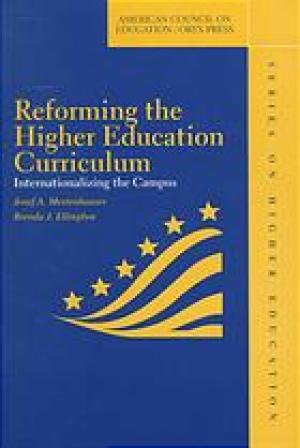
With the concept of a global village now a reality, institutions of higher learning must broaden their thinking beyond American social, cultural, and economic borders. Reforming the Higher Education Curriculum is a collection of papers that explores how a college or university can plan and implement a systemwide program for internationalizing the curriculum throughout the entire university. The contributors argue that a thorough overhaul of the higher education curriculum is necessary to turn out graduates with true international skills and perspectives. Among the strategies recommended are courses and programs that involve study abroad, intensive study of foreign languages, and opportunities to cultivate intellectual, professional, and personal associations with people from other cultures. (From the Publisher)